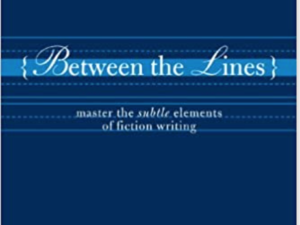One of the first things I tell new students that come into my classroom each year is that I don’t care about grades. For years, I’ve worked to de-emphasize grades and so hopefully to promote learning. It works for some students, while others never quite get beyond that need for validation from a number/letter that doesn’t really sum up their learning.
Last year, I realized I need to put my money where my mouth is (metaphorically, of course) and figure out how to actually teach in a such a way that I don’t use grades at all. With a dear friend and colleague, I embarked on a several month long journey of research, discussion, and initial tinkering to implement a workable way to teach my AP Literature class without assigning grades to any of the individual assignments.
After this preparation, I’m finally starting it. As of the last two weeks, I’ve introduced the concept to my 10 AP Lit students for the year, have approval from my principal, and have begun this journey in which we focus on what we’re learning, trying again when we don’t get it the first time, and hopefully changing mindsets of what education can look like.
I chose the AP Literature class for a variety of reasons for this experiment. I first stumbled on this idea by hearing from other AP Literature teachers that have used this approach successfully. It showed me that it is possible because it has worked. These are also seniors, most of whom have taken a previous AP class and all of whom have chosen to be here. That evidences a level of investment in the course that isn’t shared by all students in some of my other classes. Finally, as much as I downplay the importance of the AP exam at the end of the year, it does give us a benchmark by which to measure ourselves at the end of the year, an immovable task that we’re working towards.
Perhaps the greatest benefit of this strategy to teaching the class will be our approach to failure. I hope to see in both myself and my students a different philosophy of risk-taking. I’ll be honest and admit that this is somewhat intimidating; I’ve done my research, I’ve prepared as best I can, I’m reasonably confident that this will go well. And yet, trying this is a risk. What if it just doesn’t work? And yet, if I’m not willing to try something new, launch into an untested space, how can I expect my students to? I want them to try a new style of writing, to risk a novel approach on an assignment, to be free to attempt an unknown task with joy and abandon. So frequently student’s avoid the risk because we punish failure with a poor grade.
And that poor grade affects their entire experience of success for the year. Talk to the student that bombed one quiz in September and spends the rest of the semester trying to bring their overall grade back up. In this new way of teaching, an initial failure is never held against a student. It’s just an encouragement to try again, perhaps several times. And that mindset will take some time to settle in. After over a decade of having numbers/letters associated with their academic work, it’s hard to shift gears and see learning as an opportunity for success rather than a way to divert failure.
I told my AP students that we’d be doing a short quiz on some figures of speech, just to make sure we’re all starting the year on the same page. I want them to know the terms, their definitions, and most importantly to recognize them in a work when they see them. They heard the word ‘quiz’ and I saw them shrink back, their defenses coming up right away, asking questions about how long the quiz would be, when we would do it, and how much it would effect…and then it dawned on them. If they don’t get it right away, they just try again until they get it. No grade, just learning until they’ve mastered the content. And I watched the tension drain from them in a freeing moment.
That’s exactly how I hope this year goes. I want the tension, stress, anxiety, and concerns of learning to slowly diminish as they discover that their learning, their growth, their love of reading, their struggles with writing, and their worth as a human do not in any way hang on a number or letter.
I’ll likely be writing about this a few more times over the course of the year as we discover what works, what doesn’t, and how we’re growing into a different way of looking at learning.
Additional reading — this is one of the articles that first launched me on this path: https://www.alfiekohn.org/article/degrading-de-grading/



